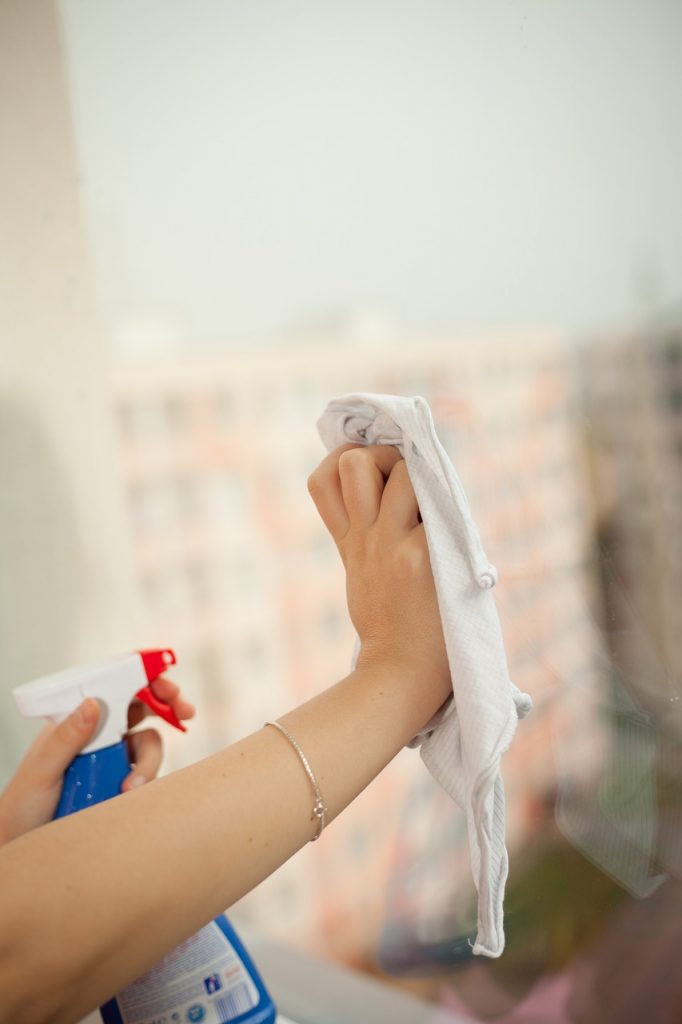Stainless steel appliances have become increasingly popular in modern kitchens due to their sleek and stylish appearance. However, they can be a challenge to clean and maintain, as they are susceptible to smudges, fingerprints, and water stains. Many people wonder if they can use Windex, a popular glass cleaner, on their stainless steel appliances. We will explore whether Windex is safe and effective for cleaning stainless steel appliances.
Windex Cleaner
Windex is a brand of glass cleaner that has been around for over 80 years. It is known for its ability to quickly and effectively clean windows, mirrors, and other glass surfaces. The active ingredient in Windex is ammonia, which is a powerful solvent that cuts through dirt and grime. In addition to ammonia, Windex also contains a variety of other ingredients, including water, isopropanolamine, and fragrance.
Is Windex safe for stainless steel?
While Windex is an effective glass cleaner, it is not necessarily the best choice for cleaning stainless steel appliances. The reason for this is that Windex contains ammonia, which can be harmful to some types of stainless steel. Ammonia can cause discoloration, corrosion, and pitting on some stainless steel surfaces, particularly those that are not properly coated or finished.
If you do decide to use Windex on your stainless steel appliances, it is important to use it sparingly and to avoid leaving it on the surface for an extended period of time. You should also avoid using it on any stainless steel that is exposed to heat, such as a stove or oven, as this can cause the ammonia to evaporate and potentially damage the surface.
What should you use to clean stainless steel?
If you want to keep your stainless steel appliances looking clean and shiny, there are a few things you should keep in mind. First, it is important to clean your stainless steel appliances regularly to prevent dirt and grime from building up. You can use a soft, damp cloth or sponge to wipe down the surface, taking care to avoid any abrasive materials that could scratch the surface.
If you need something more powerful to clean your stainless steel appliances, there are a variety of specialized stainless steel cleaners available on the market. These cleaners are designed to be safe for use on all types of stainless steel, and they can help to remove fingerprints, water stains, and other types of grime.
When choosing a stainless steel cleaner, look for one that is specifically designed for the type of stainless steel you have. Some cleaners are formulated for use on brushed stainless steel, while others are designed for polished stainless steel. You should also look for a cleaner that is free from harsh chemicals and abrasives that could damage the surface.
One option that is safe and effective for cleaning stainless steel is a mixture of white vinegar and water. Simply mix equal parts vinegar and water in a spray bottle, and use it to wipe down your stainless steel appliances. Vinegar is a mild acid that can help to dissolve dirt and grime without damaging the surface of the stainless steel.
Tips for maintaining your stainless steel appliances
In addition to regular cleaning, there are a few things you can do to help maintain the appearance of your stainless steel appliances over time. Here are some tips to keep in mind:
- Avoid using abrasive materials: Scratches and other types of damage can be difficult to repair on stainless steel appliances. To avoid this, make sure to use only soft, non-abrasive materials when cleaning your appliances.
- Follow the grain: Stainless steel appliances have a distinct grain that runs in one direction. When cleaning, make sure to follow the direction of the grain to avoid leaving streaks or scratches.
- Dry thoroughly: After cleaning your stainless steel appliances, make sure to dry them thoroughly with a soft, clean cloth.
- Use a microfiber cloth: Microfiber cloths are great for cleaning stainless steel because they are gentle and won’t scratch the surface. They also absorb moisture well, which helps to prevent water spots.
- Avoid harsh chemicals: Harsh chemicals like bleach and ammonia can damage stainless steel, so make sure to avoid using them. Stick to mild cleaners like white vinegar and water, or a specialized stainless steel cleaner.
- Be careful with magnets: Magnets can scratch stainless steel appliances, so be careful when using them. Avoid sliding magnets across the surface, and make sure to remove them carefully.
- Consider a protective coating: If you are concerned about your stainless steel appliances getting scratched or damaged, you may want to consider applying a protective coating. There are a variety of products available that can help to protect your appliances from damage and keep them looking shiny and new.
While Windex may be an effective glass cleaner, it is not the best choice for cleaning stainless steel appliances. Ammonia can be harmful to some types of stainless steel, and can cause discoloration, corrosion, and pitting. Instead, opt for a specialized stainless steel cleaner or a mixture of white vinegar and water. Remember to clean your stainless steel appliances regularly, avoid using abrasive materials, and dry thoroughly after cleaning. By following these tips, you can keep your stainless steel appliances looking clean and shiny for years to come.

